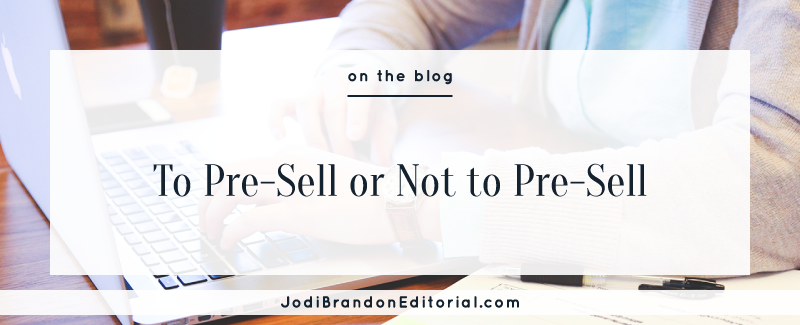To Pre-Sell or Not to Pre-Sell Your Book
Pre-sales are a hot-button topic in the book publishing world. You likely haven’t thought much about pre-sales, so let me break down a few of the most common pros and cons so you can decide what’s best for your book.
First, though, let’s define a pre-sale so we’re all on the same page. (See what I did there?) A pre-sale is, essentially, making your book available for purchase by setting up an advanced listing on a selling platform (e.g., Amazon or your website). When readers “buy,” they are simply reserving a copy, which will be shipped (if a print book) or released (if an ebook) on launch day, and at that time their payment will be processed.
Pros
The more people who read your book and can offer a review, the better. Gathering reviews pre-launch means you’ll have more reviews to use in your marketing and promotional efforts. More reviews generally mean more sales.
Pre-sales can help build buzz around a book BEFORE it launches. - @jodibrandon
Cons
If you’re counting on most of your sales to come through Amazon, pre-orders won’t count toward your total launch day sales. (Lots of self-publishing authors like that initial sales-a-palooza on launch day to try to achieve best-seller status.)
Without a compelling offer, many readers don’t mind waiting until a book is officially released to receive/pay for it. Some authors offer freebies with promo materials like bookmarks or postcards, or digital freebies like a Q&A with the author. Others have made the book pre-order link available when they revealed the cover to their email list. (On the flip side, you could offer a discounted price during the pre-sale. Customers of all sorts, readers included, love a bargain!)
There is no one right way to publish a book. - @jodibrandon
Here’s the bottom line: There is no one right way to publish a book, so weigh the pros and cons, and then make an informed decision. Once you’ve made it, don’t look back. Happy book sales!


